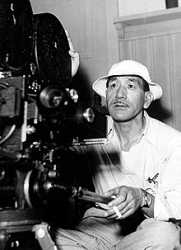>>4406063Most of what you're saying is true, but
>shoot at base ISOWhat in the fuck. Sounds like you don't know how to operate a camera yourself.
Here's some actual adivice for Zach:
You are obviously autistic, and that is why you struggle a lot with composition. Contrary to popular belief, composition doesn't have hard rules. There are guidelines (which you should look up), but at a certain point you just have to learn to "feel" it.
Here's how you can train your eye to find good compositions.
>1. Look at a lot of pics on Instagram or 500px or similar. When you see shots you like, try to analyze why they work. Where are the focal points? Where are there open spaces? How does the light fall on the subject? How is it framed/cropped and why?>2. Turn your camera into an idiot-proof point-n-shoot. Turn on Autofocus, Matrix Metering, VR, put it in S-mode (for now) and set the shutter speed to about 250, turn on Auto-ISO and set the upper limit to something you find tolerable.>3. Now go out in daylight and snap away. Take loads of pictures. Look through the viewfinder and try to think about how the elements are placed within the frame. Remember to recompose by holding the focus lock and moving the camera so that your subject isn't always in the dead center. Try to take pictures of moving things and people. Try to capture a "moment" either by discovering it suddenly and being quick, or by waiting in the right place with a composition in mind.>R. Once back home, edit your pics. You don't have to go crazy, but you should experiment with cropping a lot, to get an impression of how the composition changes depending on the framing at what you choose to exclude.After learning to compose well, you should switch to Aperture mode and focus on adding aperture and DoF as an element to your compositions. Then you can switch to Spot Metering and try to play around with exposure. Exposure Compensation can be useful for this.

